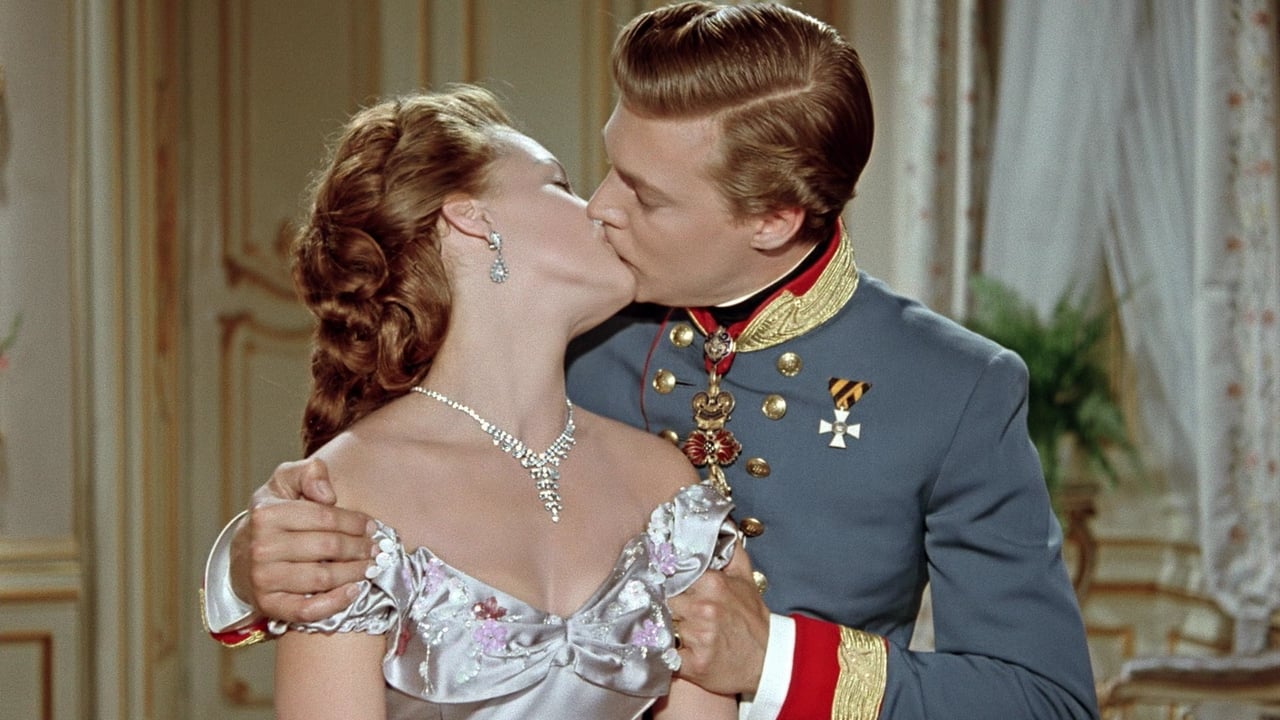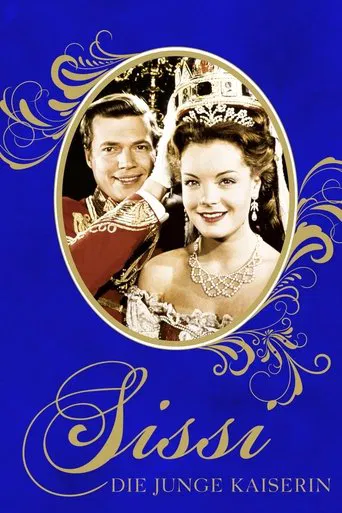

Well Deserved Praise
... View Moreridiculous rating
... View MoreIf you're interested in the topic at hand, you should just watch it and judge yourself because the reviews have gone very biased by people that didn't even watch it and just hate (or love) the creator. I liked it, it was well written, narrated, and directed and it was about a topic that interests me.
... View MoreI enjoyed watching this film and would recommend other to give it a try , (as I am) but this movie, although enjoyable to watch due to the better than average acting fails to add anything new to its storyline that is all too familiar to these types of movies.
... View More"Sissi - Die junge Kaiserin" or "Sissi: The Young Empress" is the second of 3 Sissi films starring Romy Schneider, her mother Magda and Karlheinz Böhm. Director and writer is Oscar nominee Ernst Marischka again and it runs for 105 minutes just like the first. Many of the topics in this film are exactly like they were in the first. The love between the 2 main characters is still strong, but so is Sissi's connection to back to her rural roots. She loves her parents, especially her father. She is the ultimate do-good character and protects animals this time and the Hungarians as well. The main antagonist is once again Franz Josef's mother and there are occasionally successful attempts at humor, even if this is probably even more a drama than the original movie, mostly with the motherhood plot. And of course the mountain climbing scenes, which for the first time bring the danger of death to the movies, even if it was fairly cringeworthy.I personally did not like the original too much and same applies to this one here. It suffers from one-dimensional writing, especially in terms of the character developments which are almost non-existent. The actors are mediocre for the most part and not good enough to elevate the weak script for the most part. I would not have needed this sequel and I also do not need a third film. I have almost no hope this one is better than these first two. Do not be fooled by the awards recognition this film got. Schneider lost the Bambi for the second year in a row to Maria Schell. The best thing about this film is, just like with the first the visual side. Schneider looks absolute stunning and the costumes cinematography and set decorations are all fairly good. But these pros cannot make up for the lack of great story or acting. Admittedly, it is not worse than the first in my opinion, so if you enjoyed that one, you will probably like this one as well. I just wouldn't know why. Not recommended.
... View MoreRomy Schneider is "Sissi: The Young Empress," Empress Elisabeth of Austria, in this 1956 film, the second of the popular trilogy. Schneider was nearly 18 at the time, and absolutely beautiful and charming in the role.I need to say here, for anyone non-European or anyone who has not spent time in Austria, Germany, Hungary, etc., Sissi was the Princess Diana of her day and in fact, remains popular. Her face is on everything from candy wrappers to pins, pocket watches, necklaces - she's everywhere. She's been the subject of musicals, countless books, TV miniseries, plays, and films.As others have pointed out, this is an idealized story of Sissi, with lots of facts left out as well as the more negative aspects of Sissi's personality - her anorexia, for one. Here, she is still in the honeymoon phase with her husband, the Emperor Franz Josef; and she is also anxious to help to build a good relationship with Hungary.Sissi runs into problems when she becomes pregnant with her daughter Sophie, and her mother-in-law, convinced that Sissi is too young to be a good mother, takes the child from her in order to raise her. Angry that Franz will not stand up to his mother and instead, takes her side, Sissi leaves him and returns home to her family. It's pointed out to her that she has duties as a royal that must be fulfilled.In actuality, Sissi's mother-in-law was worse to her than shown in the film. Also, by the time she becomes Queen of Hungary, she has three children but the film only speaks of one, Sophie, who by then is deceased.These films are incredibly popular in Europe and I believe are shown at Christmas. The color is beautiful, the costumes and furnishings are gorgeous - these films are truly a treat for the eyes.Read up on Sissi to get the real story, and enjoy these romanticized films for what they are: Sissi-lite.
... View More....and she will have them all on her side,says Duchess Ludovica (Magda Schneider) to her son-in -law who is none other than the Emperor of Austria Franz-Joseph.In real life ,Elisabeth was not as lucky as Romy Schneider's character:not only her first daughter died (the one we see in this part of the trilogy)at a very early age (two) but she was also estranged from her second one ,Gisèle (whom we see in the third "schicksal (sic)" segment.As for her only son,the doom-fated Rudolph,she was never allowed to take care of his education,although she intervened once to snatch him from the clutches of Gondrecourt -who fired several shots in the Kronprinz 's bedroom to gently wake him up.The only one she had for her was her last,Valerie.So we find Sissi battling against her sinister mother-in-law,a stickler for form.She has to strike back ,not only to get her child again ,but also for count Andrassy and his Hungarians the old lady will always consider her enemies.There is a charming moment when Sissi and Franz take a holiday in the mountains.And as always,in the last scenes,pomp and circumstance prove that the love you take is equal to the love you make.I will always love the Sissi saga.It's part of my childhood.Forever,my love.
... View MoreContemporary critics, including ones on this site may describe as "kitsch" the Sissy series (Princess of Bavaria, Queen of Hungary, and Empress Consort of the Hapsburgs). But this is unfair. Everything must be seen in its time frame, and not retrospectively. The fact is this three part series was highly successful. So much so, it has been available in subtitled video in at least three languages I speak, Spanish, French, and English, for years. Speak to any older movie goer, who was a kid in the late 50's from Buenos Aires to Montreal to Paris, and he or she will remember Sissy fondly. I have seen many tourists in Vienna using the Sissy series as their total source of references while touring this city. This movie and the others, not only provided popular entertainment, historical education, and restored pride in German speakers in the post-war period. It made an international star of Romy Schneider, while she was still in her teens! The trio of Sissy features, prominently including the installment this IMDb page describes, made between 1955 and 1957 were edited together in 1962 into a 140 minute feature. I had previously seen all three individual installments about the Elizabeth (Sissy) and Franz Josef of Austria, dubbed in Spanish. They are beautiful films, recreating the entire period of history of the romance between young Sissy, Princess of Bavaria and the young Franz Josef, from the very beginning to the period after the "Ausgleich" (establishment of the dual monarchy of Austria-Hungary). It ends on a high note, while all involved was at its peak, leaving out the all the subsequent tragic events that marred Sissy's life, and that of Franz Josef, indeed the entire Empire. While some historic details are simplified, the bulk of the story is pretty well told, despite the teenage puppy love and later melodramatic elements thrown in to please the audience, and make the most of Schneider's incomparable charm, youth and beauty. See the condensed video if you are an English speaker. In fact I believe that is your only option. The three separate films, as described on this site are available in Spanish, French, Italian, and German only to my knowledge. But the 140 minute English-dubbed version is even available in NTSC now. It is sold in the USA. I hope American Amazon.com soon offers it, hopefully once this comment appears. Enjoy it! It's a classic.
... View More